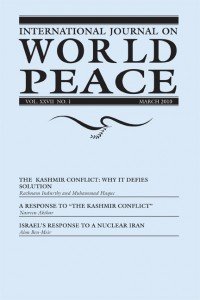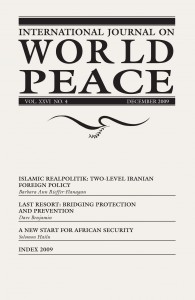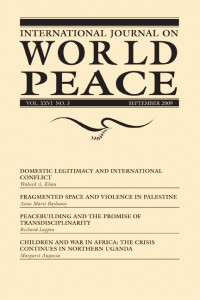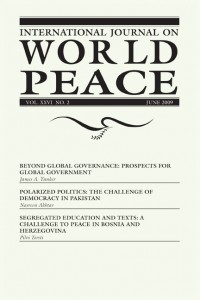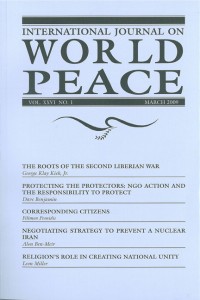Introduction to IJWP, September 2010
Twenty-five years ago, from August 16-20, 1985, the Professors World Peace Academy sponsored a conference on “The Fall of the Soviet Empire: Prospects for Transition to a Post-Soviet World,” organized by Professor Morton A. Kaplan of the University of Chicago and Lithuanian-born Soviet scholar Alexander Shtromas, who was teaching at the University of Salford in the UK. As an insider, Shtromas was one of the world’s most knowledgeable experts on the Soviet system. I was the secretary for the conference held in Geneva, Switzerland, in which over 90 research papers on all aspects of Soviet society were discussed.
In this issue of International Journal on World Peace, our first articles will take a retrospective look at the thought about the future of the Soviet Union and the international order at the time, some of the recommendations of Morton A. Kaplan and others, the collapse that came more quickly than most of those at the conference predicted, and opportunities for a more peaceful international order lost.
Continue reading →

